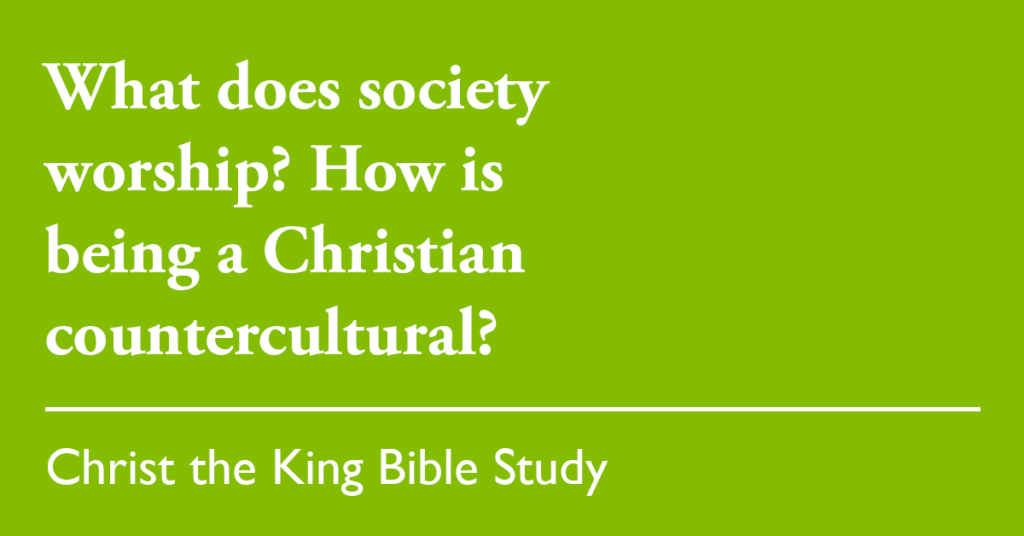Bible Study: Christ the King (C) – 2022
November 20, 2022
[RCL] Jeremiah 23:1-6; Canticle 16; Colossians 1:11-20; Luke 23:33-43

Jeremiah 23:1-6
The prophet Jeremiah was no stranger to hard times. He was a pariah in his community, thanks to his unusual ways of delivering unpopular messages. He watched as the Babylonians attacked his people, carting thousands of them into exile, while he was left behind. In a society where everything was tied to the land—culture, religion, survival—this was devastating to the Israelites. But while Jeremiah foretold of the coming captivity, earning him the enmity of his own people, he also preached hope. This trauma to the Jewish people also became a story of their resilience and survival.
In this passage, Jeremiah tells his people that while they may be scattered now, a new day is coming where no one is lost, no one is separated, and all will be made right by a new king who will “execute justice and righteousness in the land.” This new king will bring safety, and fear will be driven out. In this passage, we hear the whispers of the Good Shepherd, the Prince of Peace, who will deliver his people.
- What would justice and righteousness look like to you?
- We are ending a period of our own exile as we enter a new phase of the COVID-19 pandemic. What do you think Jeremiah would say to us?
- This passage articulates what it means to be a good leader. What else would you add to these characteristics?
Canticle 16
Today’s psalm is actually a canticle, known as the Song of Zechariah, from the Book of Common Prayer. The text is taken from the Gospel of Luke, when Zechariah gives thanks for his son, John the Baptist, at his circumcision. John the Baptist foretold the coming of the Messiah, who was his cousin, Jesus. This canticle is used often in Morning Prayer, and it is also part of the burial rites of our tradition. This new king, of whom John will tell, will “guide our feet into the way of peace.”
- Why do you think this canticle is included for Christ the King Sunday?
- How does Zechariah describe the Messiah? Does that mesh with your understanding of Jesus?
- How will you prepare the way of the Lord this week as you go out into the world?
Colossians 1:11-20
The Letter to the Colossians, written by Paul or perhaps one of his disciples in his name, was to a community facing a crisis. The followers of Jesus in Colossae were struggling to figure out who they were; some had come into the community teaching things that were not consistent with the way of Jesus. Paul urges them to remember who their king is and to put aside these false teachings. In this passage, he tells them that through Christ “all things hold together.” Paul also reminds his readers that God is “pleased to reconcile to himself all things,” including us, through the cross.
- What do you think it means for God to “hold all things together”? Do you trust God to do that? Why or why not?
- What pulls you away from Jesus? What things of this world make it hard to believe in a reconciling God?
- Paul prays that his reader endures “everything with patience, while joyfully giving thanks.” What do you need from God to meet the challenges of the world?
Luke 23:33-43
What do you think of when you picture a king? Perhaps riches. Perhaps power. Maybe majesty, strength, and beauty.
What a far cry from those traits this scene at The Skull is. Instead of being majestic, Jesus is disgraced as a criminal. Instead of strong, Jesus is weak. Instead of beautiful, Jesus is grotesque in his suffering.
This reading for Christ the King Sunday turns on its head all our images of royalty and kingship. And yet, in this very passage, we see the truth of the Kingdom, or Kin-dom of God. It is about the awesome power of love, as Jesus forgives his executioners. It’s about the strength of God’s power as shown on the cross. It’s about the beauty of repentance that we see in the criminal who asks Jesus to remember him.
Like the cross, the kin-dom of God isn’t what we expect. It’s full of beauty, love, and majesty, but maybe not in the ways we think. And it starts with a symbol of shame and disgrace, resurrected to be the instrument for the life of the world.
- Where do you see God in surprising ways in the world?
- What does worshipping an executed Christ tell us about who God is? What does that tell us about how we should see the world?
- What does society worship? How is being a Christian countercultural?
Don’t forget to subscribe to the Sermons That Work podcast to hear this sermon and more on your favorite podcasting app! Recordings are released the Thursday before each liturgical date.
Receive Free Weekly Sermons That Work Resources!


